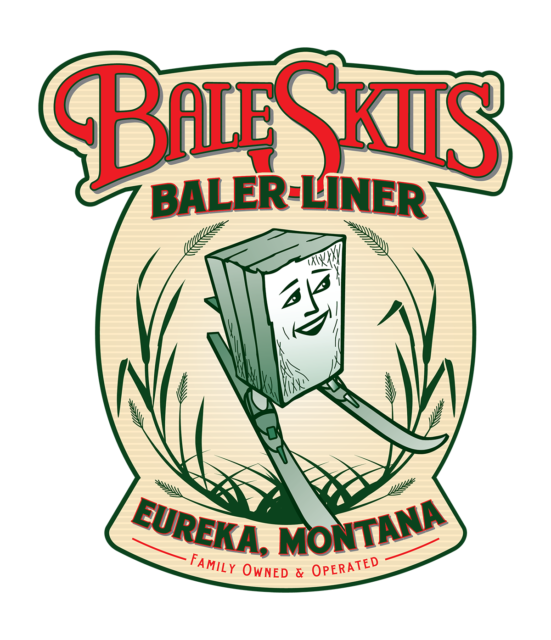Digest Highlights Culver's to send ‘care packages’ to Wisconsin dairy farmers New York seeks input from dairy farmers Fairlife introduces snack-sized beverages Northwest Girl Scouts can earn Dairy Patch Borden delivers milk, other beverages to Hurricane Michael victims Cheese may lower BMI Land O’Lakes, Gravie expanding farmer health insurance program for 2019 Petition filed over non-GMO label Livestock groups petition DOT for ‘hours of service’ flexibility New Zealand mycoplasma eradication effort expands Multiple factors impacting crop input outlook
Culver's sending ‘care packages’ to Wisconsin dairy farmers
The Wisconsin-based Culver's restaurant chain asked customers to support the state’s dairy farmers. They did.
Starting Oct. 22, the company announced it would accept nominations for up to 500 farm families, making them and their employees eligible for Culver's gift cards and certificates. By Oct. 23, 800 farm families had been nominated. Culver's pledged to send a care package within two weeks of their nominations.
As of Oct. 1, the number of Wisconsin dairy farms had declined to 8,304, about 634 less than a year earlier.
New York seeks input from dairy farmers
The New York Commissioner of Agriculture and Markets is conducting an online, anonymous survey of the state’s dairy farmers, through Dec. 31.
The survey seeks input on the status of the dairy industry, as well as ideas to improve programs and institutions that impact the financial environment of dairy markets. Survey respondents are asked to identify factors contributing to declining milk prices, provide opinions on the effectiveness of Federal Milk Marketing Orders and dairy checkoff programs, select methods to manage supply and prices, and indicate initiatives designed to increase milk consumption and use.
Survey results will be summarized and presented to the state’s Milk Marketing Advisory Council.
Fairlife introduces snack-sized beverages
Fairlife LLC has launched fairlife smart snacks, a new collection of snack-sized beverages made with the company’s ultra-filtered milk.
The fairlife smart snacks are a blend of lactose-free, high-protein fairlife milk with honey and oats. Available in chocolate, French vanilla and strawberry, each flavored variety offers 15 grams of protein and 5 grams of dietary fiber in an 8-ounce bottle.
The snack beverages are available in select Wal-Mart stores, multipacks on Amazon.com, and with limited distribution in select stores nationwide. The suggested retail price is $2.29 for a single-serve 8-ounce bottle, and $24.99 for a multipack of 12.
Fairlife LLC was founded in 2012 by Mike and Sue McCloskey of Select Milk Producers Inc.
Northwest Girl Scouts can earn Dairy Patch
The Girl Scouts of Oregon and Southwest Washington (GSOSW) are partnering with the Tillamook County Creamery Association (TCCA) and Oregon Dairy and Nutrition Council (ODNC) on a new program designed to educate girls about farms and food production.
Through five hands-on steps, the Oregon Dairy Patch program encourages girls to learn by doing as they visit a dairy farm, discover how milk is transformed into dairy products, explore dairy nutrition and learn about careers in the industry, ranging from dairy farmer to food scientist to food marketer. The program finishes off with a taste test.
The new program debuted during the Girl Scouts Oregon Dairy Day, Oct. 20, at Tillamook Creamery, in Tillamook, Oregon.
The program follows the key components of Girl Scout programming, including: Discover (find out who she is, what she cares about and what her talents are); Connect (collaborate with other people, both locally and globally, to learn from others and expand her horizons); and Take Action (do something to make the world a better place).
Borden delivers milk, other beverages to Hurricane Michael victims
Borden teamed up with World Central Kitchen to distribute 177,260 individual servings of milk, orange juice, iced tea and bottled water to those affected by Hurricane Michael.
As a result of the hurricane, Borden shifted production and distribution across its network of 13 plant locations to prevent any customer disruptions and to specially produce additional beverages for World Central Kitchen.
The beverages were processed and packaged in Borden’s plant in Dothan, Alabama. World Central Kitchen distributed the drinks among evacuee shelters and centers serving the local communities in Bay County, Florida, and surrounding areas.
Borden is also collecting funds for its employees who have been affected by Hurricane Michael and will match 100 percent of donations made via GoFundMe.
Cheese may lower body mass index
Higher cheese consumption may be associated with a lower body mass index (BMI), according to a study published in Nutrients, a peer-reviewed open access journal of human nutrition.
The study analyzed data from 1,690 men, aged 45 to 59 years and free of cardiovascular disease, diabetes and cancer, at five-year intervals for over 20 years. A food frequency questionnaire estimated the intake of dairy, including milk, cheese, cream and butter.
The results showed higher cheese consumption was associated with lower BMI at the five-year follow-up, and there was no evidence that higher consumption of total dairy was significantly associated with BMI over the 10-year follow-up.
The study was conducted by researchers in the United Kingdom and France, with no outside funding.
Land O’Lakes, Gravie expanding farmer health insurance program for 2019
Land O’Lakes Inc. and Gravie will expand their Farmer Health Insurance Plan in 2019, making policies available to cooperative members and their employees.
Law changes in Minnesota implemented last year allowed agricultural co-op members to band together to purchase group health benefits. A group of Minnesota co-ops piloted the program, and Land O’Lakes partnered with Gravie, a Minneapolis-based benefits marketplace, to design a health plan exclusively for farmer-owned co-op members.
Due to its success, the program is expanding. In Minnesota, the number of participating co-ops is growing by over 60 percent, and in 2019, eligible co-op members and their employees will be able to take advantage of the program.
Land O’Lakes and Gravie are also working to expand the program to other states.
Read previous Progressive Dairyman articles on dairy farmers and health insurance here:
A new ‘cooperative’ model for farm health insurance
‘Association’ policies might offer dairy health insurance opportunity
Should farmer healthcare coverage be considered as part of 2018 Farm Bill?
Petition filed over non-GMO label
The Information Technology & Innovation Foundation (ITIF) filed a citizen’s petition alleging the “Non-GMO” Project language and butterfly logo on consumer products “deceives consumers through false and misleading claims” about food. The petition requests the U.S. Food and Drug Administration ban the use of “Non-GMO” on consumer foods and goods.
The petition refers to Section 403 of the Federal Food, Drug and Cosmetic Act (FFDCA), which defines misbranded food as any food with false or misleading labeling or advertising.
ITIF based its petition on four statements of grounds pertaining to the Non-GMO Project and logo, alleging that it “wrongly stigmatizes so-called ‘GMOs,’” makes false claims about food health and safety, which is conveyed through its butterfly logo, makes false claims about the science of GMO safety and is prohibited by FFDCA.
Livestock groups petition DOT for ‘hours of service’ flexibility
Organizations representing livestock, bee and fish producers and haulers have petitioned the U.S. Department of Transportation (DOT), seeking a five-year exemption on hours of service (HOS) requirements. Joining the request were the National Cattlemen’s Beef Association, Livestock Marketing Association and American Farm Bureau Federation.
Livestock haulers and agricultural organizations have questioned the original mandates, introduced in late 2017. Livestock haulers had been operating on an implementation delay until the end of the fiscal year 2018 (Sept. 30, 2018). A Senate-passed fiscal year 2019 “minibus” appropriations bill includes an amendment to delay implementation of the mandates for livestock haulers by one more year.
The hours-of-service stipulations make it difficult to transport livestock long distances without either stopping to unload midway at holding facilities or keeping livestock in the trailer for the 10-hour wait time. Another option to stay within regulations would be using teams of drivers, but there has been a shortage of drivers, especially for livestock transportation.
Citing low livestock hauler accident statistics, the petition also encourages DOT to work with the livestock industry to implement additional fatigue-management practices.
New Zealand mycoplasma eradication effort expands
New Zealand’s Ministry for Primary Industries (MPI) has moved to the next phase in its efforts to eradicate Mycoplasma bovis, conducting nasal swabs at about 200 calf-rearing operations. The properties selected are those where calves from at least five different sources are commingled, essentially targeting up to 1,000 source farms.
As of Oct. 12, 11 dairy farms and 24 beef farms were identified as “infected properties,” a designation that requires herd depopulation. Following depopulation, farms are disinfected and must lie fallow for 60 days, after which they can be restocked. Dairy and beef owners ordered to depopulate herds receive compensation.
Fifty-nine properties had received “restricted place” notices, which prohibit all unauthorized movements of farm stock and other risk goods onto and off the property; and 220 had received a “notice of direction,” when animals from infected properties move to that property but testing has not happened or test results are still pending.
Last July, MPI started a second round of milk testing, taking milk samples from every New Zealand dairy farm every two weeks, up to a total of six samples over 12 weeks. Individual farm reports were expected to be sent to producers in November.
Mycoplasma bovis is a bacterium that causes udder infections (mastitis), abortion, pneumonia and arthritis in cattle.
Multiple factors impacting crop input outlook
Some of the same factors impacting the dairy industry are influencing the outlook for crop inputs, according to the Northwest Farm Credit Services (FCS) Crop Inputs Market Snapshot.
The current environment is causing headaches for agricultural retailers planning for next year. Factors include:
• Commodity prices and shifting crop acreage. Although conditions can change quickly, if crop prices remain at current levels, growers are expected to reduce soybean acres, shifting to corn or wheat, making it difficult to plan purchases of fertilizer and crop protection products this fall. This uncertainty is coming at a time of higher fertilizer prices, year over year. Prices are expected to remain firm through the fourth quarter on steady fall fertilizer demand. Urea and ammonia could see firmer prices if farmers plan to plant more corn acres in 2019.
• Weaker farm economy. Farmers are less likely to prepay for crop inputs this year. This will put agricultural retailers and agronomy margins in a risky position over the next six to nine months.
• Seed and crop protection product prices. The prices of crop protection products imported from China have risen this year. Price increases are not due to tariffs, but rather China’s enforcement of environmental standards for manufacturing plants. Many crop protection manufacturers were hit with fines and forced to shut down, leading to lower product availability and higher prices. In turn, agricultural retailers will likely face margin compression on crop protection sales. ![]()

-
Dave Natzke
- Editor
- Progressive Dairyman
- Email Dave Natzke








